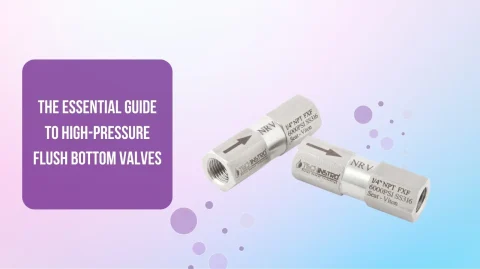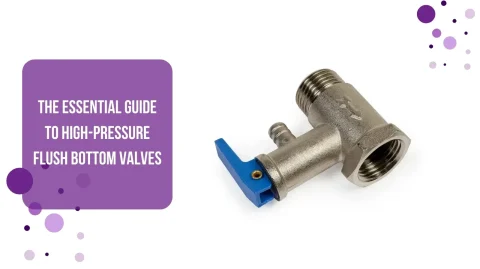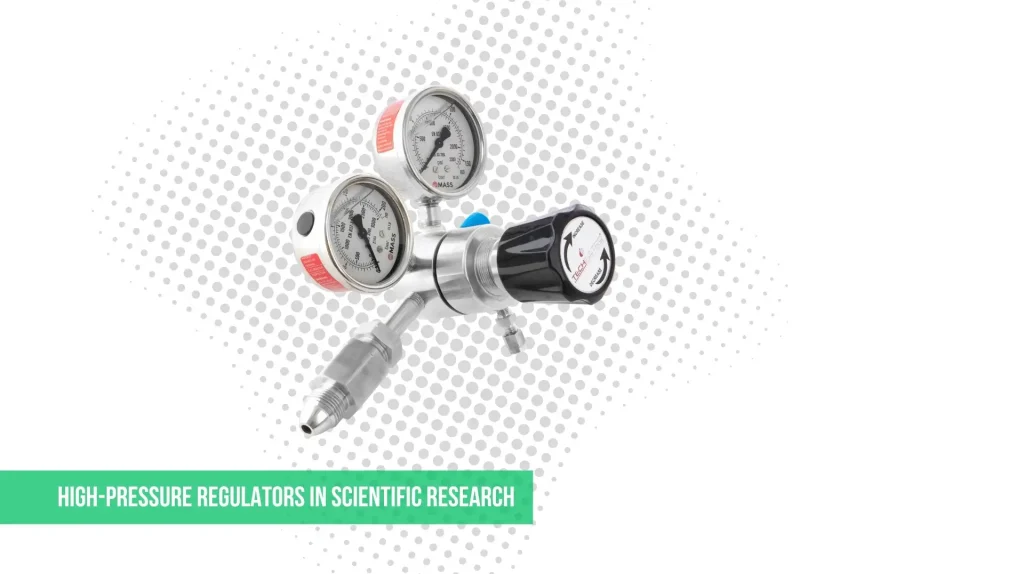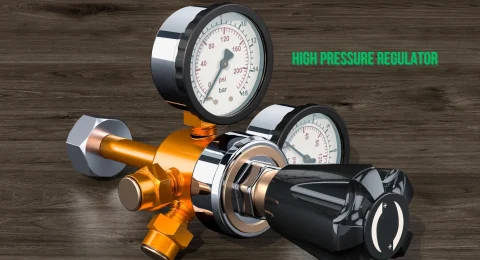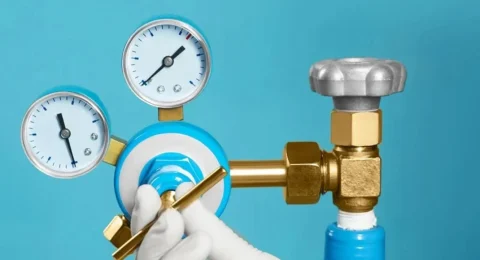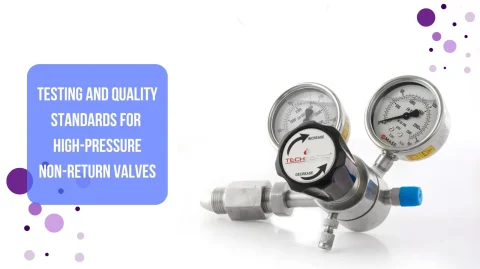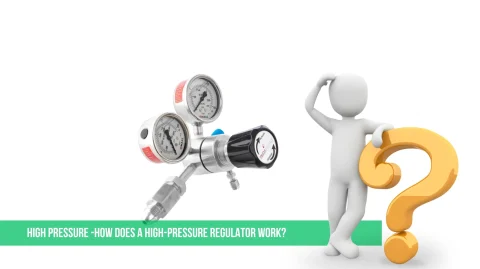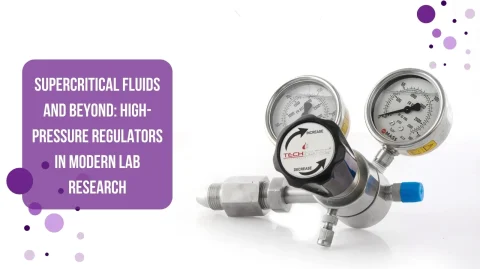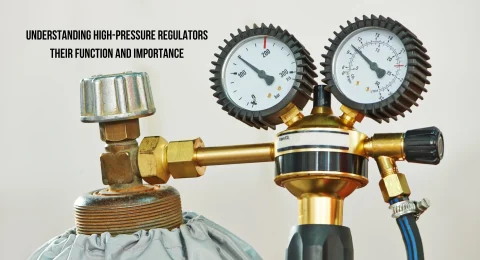High-pressure regulators are essential tools in scientific labs. They control the flow of gases from high-pressure tanks to your experiments. Without them, gases would be too dangerous to use, and your equipment could get damaged. This guide explains why these regulators matter, how to choose the right one, and how to keep them working safely.
What Do High-Pressure Regulators Do?
- Reduce Pressure – They take gas from high-pressure tanks (up to 6,000 psi) and lower it to safe levels for experiments.
- Keep Pressure Stable– They ensure gas flows at a steady rate, which is crucial for accurate results.
- Protect Equipment– They prevent sudden pressure spikes that can damage sensitive lab instruments.
- Control Gas Mixes- Some regulators help mix gases precisely for chemical reactions.
High Pressure Regulator Manufacturers:
Where Are They Used?
- Gas Chromatography (GC) – Needs exact pressure for accurate testing.
- Mass Spectrometers (MS) – Requires ultra-precise gas control.
- Chemical Reactors– Manages gas flow for safe reactions.
- Bioreactors – Control oxygen and CO₂ for cell growth.
Safety Tips:
- Always check for Leaks – Use soapy water to spot bubbles.
- Open Gas Tanks Slowly– Prevents sudden pressure shocks.
- Wear Safety Gear– Gloves and goggles are a must.
- Train Your Team – Everyone should know how to use regulators safely.
Maintenance Checklist
- Weekly: Quick visual check for damage.
- Monthly: Test if pressure readings are correct.
- Yearly: Get a professional inspection.
- Immediately Fix: Any leaks or broken parts.
New Technology in Regulators
- Smart Regulators – Send alerts if something’s wrong.
- Self-Checking Models- Warn you before they fail.
- Stronger Materials – Last longer with harsh gases.
Conclusion:
High-pressure regulators are small but crucial for lab safety and accurate results. Choosing the right one, using it safely, and keeping it in good shape will save you time, money, and headaches.
Final Advice:
- Match the regulator to your experiment’s needs.
- Invest in quality for important work.
- Train your team properly.
- Never ignore leaks or damage.
